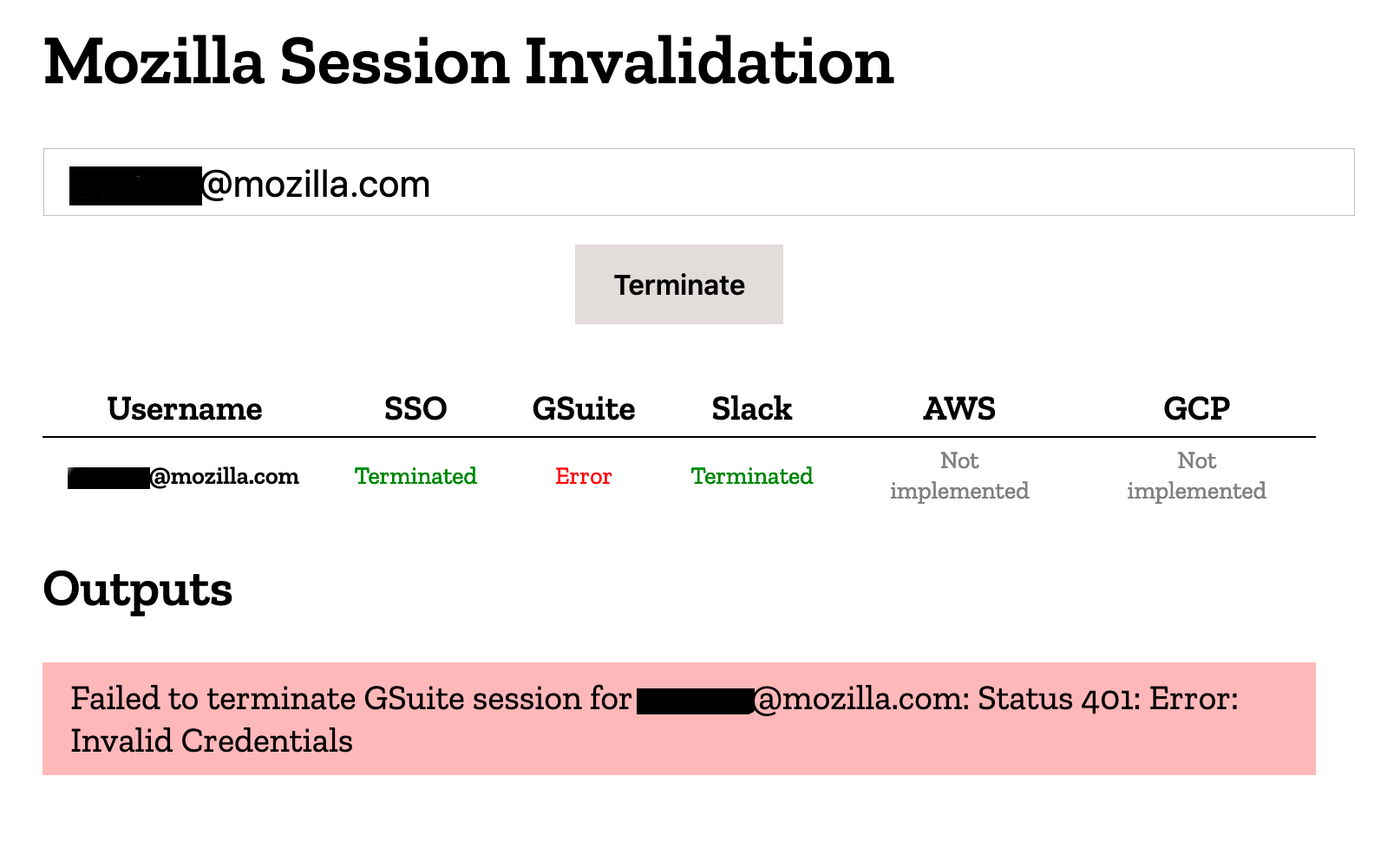|
|
||
|---|---|---|
| docs | ||
| scripts | ||
| sesinv | ||
| static | ||
| tests | ||
| .gitignore | ||
| LICENSE | ||
| MANIFEST.in | ||
| Makefile | ||
| README.md | ||
| lambda.py | ||
| package.json | ||
| requirements-test.txt | ||
| requirements.txt | ||
| serverless-dev.yml | ||
| serverless-prod.yml | ||
| setup.py | ||
README.md
session-invalidation
The Mozilla Session Invalidation tool (name subjet to change) is a solution providing Information Security teams such as Mozilla's Enterprise Information Security (EIS) with the capability to rapidly terminate the sessions of user accounts across a variety of reliant parties (RPs), i.e. services that a user may have a session on. In doing so, a potentially compromised user account can have its access to services revoked, preventing an attacker from using a compromised account to wreak havoc.
The Session Invalidation tool is implemented as a web application powered on the frontend by VueJS and by AWS Lambda.
A user need only provide the email address of the user whose accounts they wish to terminate, granted that this email address is tied to each of the supported RPs.
Supported Reliant Parties
At the time of this writing two RPs are supported: SSO and Slack.
Single Sign-On
Many organizations use SSO to manage access to a variety of other RPs like JIRA. If a user's SSO session were compromised, the attacker in question would have access to each of the RPs protected by SSO. By terminating a compromised user's SSO session, we can contain this issue and prevent an attacker from getting access to any RPs that they have not already compromised sessions for.
Terminating access to individual RPs beyond this point must be done on a service-by-service basis, and this tool makes it relatively easy to implement new functionality to do just that.
GSuite
GSuite is used by Mozilla and many organizations as one of the primary sources of common services such as email, calendars etc. An attacker with access to a user's GSuite session could potentially access these services and send malicious communications to phish other individuals, read emails and access sensitive documents. By terminating a user's GSuite session, we can provent them from gaining further access to sensitive resources or manipulating others into downloading malware or submitting credentials to an attacker-owned destination.
GCP
Invalidating user sessions works exactly the same way as it does for GSuite, and even relies on the same code. The sesson invalidation app has distinct configuration parameters for GCP so that one can terminate sessions for GSuite users in one organization and GCP users in a separate dedicate organization.
Slack
Where Slack is used by organizations for sensitive communications and file sharing, a compromised Slack user account could lead to an attacker phishing other users, downloading files and obtaining sensitive information. The session invalidation tool is able to immediately log a user out of Slack, forcing the account owner who knows the account password and, ideally, owns the account's associated MFA device to log back in, eliminating the attacker's presence from the Slack account.
Development
The Session Invalidation tool (name subject to change) is currently in an early and active stage of development. The backend API is not likely to undergo any change in the near future, however its interface is described in docs/api.md.
Adding support for new RPs can be done in a fairly modular fashion, and a guide explaining all of the changes that need to take place to support terminating sessions for a new RP in both the backend and frontend an be found in docs/supporting_new_rps.md.
Deployment
The Session Invalidation tool runs in AWS Lambda, depending on an AWS SSM parameter to store secrets and AWS S3 to host static content for the frontend. All of the steps to create these resources and deploy the application can be found in the deployment guide.
